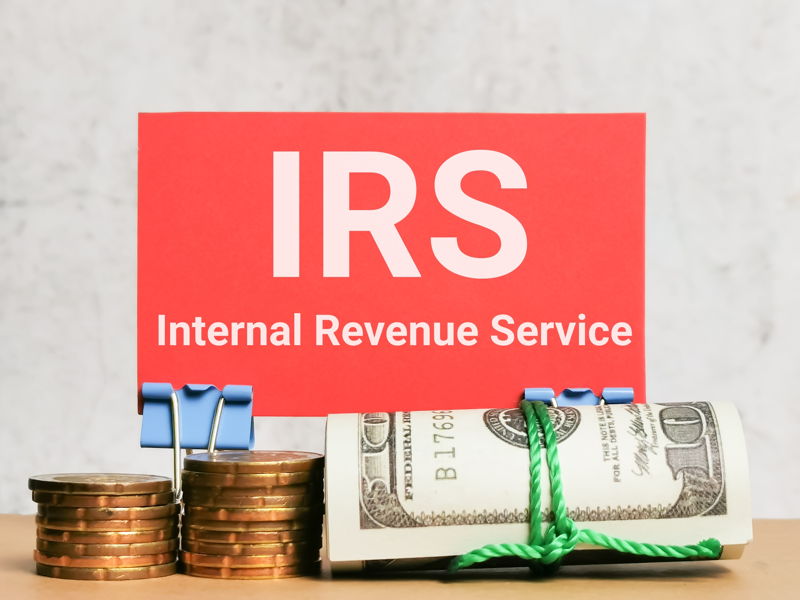Receiving an audit notice from the IRS can be unsettling. But, knowing the potential repercussions can help you address the situation better. If discrepancies are found, and you owe more than what you reported, you’ll be responsible for the unpaid amount plus interest.
The IRS may assess penalties depending on the nature and severity of the errors. In extreme cases, where fraud is evident, you might wonder, “Can you go to jail for IRS audit?” The answer is yes, though rare. But, is that all? Of course not. There is more to IRS audits than just penalties. You need to know how to tackle situations like these. How? Let’s look!
What Are the Consequences When Failing an IRS Audit?
The consequences of failing an IRS audit can lead to:
Having to pay back taxes, interest, and penalties: The IRS can assess additional taxes, interest, and penalties on the amount of taxes you understated or failed to report. The interest rate is currently 5% per year, and the penalty rate is currently 75% of the amount of taxes you understated or failed to report.
- Being subject to criminal prosecution: If the IRS determines that you intentionally evaded taxes, you could be subject to criminal prosecution. This could result in fines, imprisonment, or both.
- Losing your professional licences: If you are a licensed professional, such as an accountant or lawyer, you could lose your license if you are found to have committed tax evasion.
- Being barred from holding certain government jobs: If you are found to have committed tax evasion, you could be barred from holding certain government jobs.
- Damage to your reputation: If you are found to have committed tax evasion, it could damage your reputation and make it difficult to get a job or loan in the future.
What Are the Typical Triggers for Penalties and Fees in IRS Tax Audits?
Certain red flags can trigger penalties and fees during an IRS audit. Common triggers include:
- Underreporting income: If the IRS determines that you have underreported your income, you may be subject to a penalty. The amount of the penalty will depend on the amount of income you underreported and the reason for the underreporting.
- Overstating deductions: If the IRS determines that you have overstated your deductions, you may be subject to a penalty. The amount of the penalty will depend on the amount of the deduction you overstated and the reason for the overstatement.
- Failing to file a tax return: If you fail to file a tax return, you may be subject to a penalty. The amount of the penalty will depend on how late you file your return and whether you have a history of failing to file returns.
- Willful neglect: If the IRS determines that you have willfully neglected your tax obligations, you may be subject to a penalty. Willful neglect is defined as intentionally disregarding the rules and regulations of the Internal Revenue Code.
- Fraud: If the IRS determines that you have committed fraud, you may be subject to a penalty. Fraud is defined as intentionally deceiving the IRS in order to avoid paying taxes.
Late filings are another concern individuals often ask, “are there penalties for filing taxes late?” The answer is yes, and these penalties can add up quickly, especially when combined with the interest on any unpaid tax amounts.
Even if your tax return is accepted, one might wonder, “can you get audited after your tax return is accepted?” Indeed, acceptance of a return doesn’t make it immune to future scrutiny.
How Are Penalties Imposed in Cases of IRS Audits?
The process of imposing penalties after an audit revolves around the nature of the discrepancies found. The IRS takes into account factors such as:
- Negligence
- Substantial understatements
- Fraudulent activity
The IRS does have a structured system, and many ask, “how does the IRS calculate penalties and interest?” The IRS uses specific percentages based on the type and severity of the error. Negligence penalties are based on the amount of taxes you underpay because of careless mistakes. Fraud penalties are more serious and can be much larger because they’re based on the amount of taxes you underpay intentionally.
If Audited and You Owe Money, What Are the Outcomes?
IRS audits ae pretty scary. So, if I get audited, what happens? Once the IRS determines that you owe money, several things can occur.
- First, you will be sent a notice detailing the amount owed, along with any associated penalties or interest.
- There might be failure to file and failure to pay penalties, which can increase the amount significantly.
- It’s crucial to address these promptly to prevent further complications. In some cases, the IRS may establish a payment plan. But, if the situation is more severe, the might take more stringent measures, such as garnishing wages or placing a lien on assets.

IRS Audits: Things you should also know!
What Follows If an IRS Audit Reveals Tax Evasion?
 Tax evasion is a severe offense. When the IRS uncovers intentional underreporting of income or fraudulent activities during an audit, the implications can be grave. Not only will there be substantial fines and penalties, but there’s also the potential for criminal charges. Moreover, it’s essential to note that even if your tax return is accepted initially, it doesn’t mean you’re safe from scrutiny;
Tax evasion is a severe offense. When the IRS uncovers intentional underreporting of income or fraudulent activities during an audit, the implications can be grave. Not only will there be substantial fines and penalties, but there’s also the potential for criminal charges. Moreover, it’s essential to note that even if your tax return is accepted initially, it doesn’t mean you’re safe from scrutiny;
you can get audited after your tax return is accepted. The best approach if suspected of tax evasion is to consult with legal professionals and take immediate corrective actions.
Get help: Address IRS Audit Penalties
When facing an IRS audit, it’s common to feel overwhelmed. This is especially more severe if you’re unfamiliar with how much is a late filing penalty or how to navigate tax laws. The good news is, there are professionals well-equipped to help you understand and mitigate potential penalties.
Whether you’re being audited by the IRS for the first time or facing reoccurring issues, getting expert assistance can streamline the process. This ensures you’re well-prepared to address any challenges head-on. Be informed and stay compliant, that’s the mantra!









